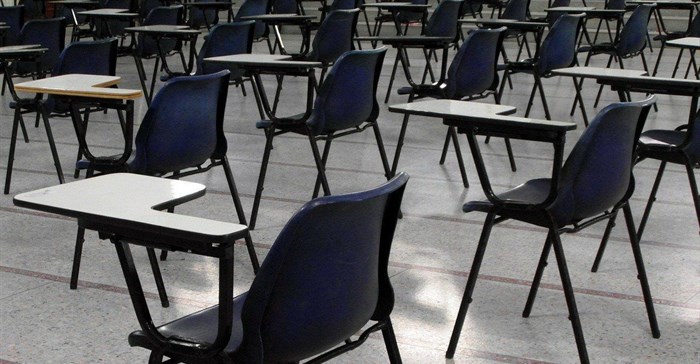As many as half a million more children than expected have dropped out of school during the pandemic. School dropout may have tripled from 230,000 learners pre-pandemic to approximately 750,000 in May 2021.

Source: PublicDomainPictures via
PixabayThis is according to findings released on Thursday in the fifth set of results from the National Income Dynamics Study - Coronavirus Rapid Mobile Survey (NIDS-CRAM). The NIDS-CRAM survey covers the impact of the Covid-19 pandemic and the lockdown on South African households.
Based on responses by 5,862 people between 6 April and 11 May 2021 and using data from all five NIDS-CRAM surveys, the report looked at learner dropout, learning losses, child hunger and access to school meals.
Some 10% of respondents indicated that at least one learner in their household had not returned to school since the beginning of the year.
Nompumelelo Mohohlwane, of the Department of Basic Education, speaking at the launch of the survey said there were approximately 13 million children in Grades 1 to 12 in South Africa. Comparing household and learner attendance patterns of the 2018 General Household Survey, Mohohlwane said they estimate that 650,000 to 750,000 children aged 7 to 17 years old were not attending school by May 2021. This is an increase of approximately 400,000 to 500,000 when compared to pre-pandemic times, and a decline in the attendance rate amongst this age group from 98% in 2018 to 94% in May 2021.
Learner dropout rates are now at the highest rate they have been since household surveys started to monitor it in 2002. School attendance is at the lowest level it has been in 20 years, the report says.
"We don’t know if these children will return to the schooling system later on or if they are permanent dropouts. But we do know that the longer children remain out of the schooling system, the higher the likelihood of permanent dropouts," said Nic Spaull, an education researcher from Stellenbosch University.
Mohohlwane said the lowest return to schools was observed in the Free State (87%) and Eastern Cape (92%).
"The highest number are Grade 8 and 9 learners, followed by the FET phase (Grade 10-12), and then the foundation phase," said Mohohlwane.
Learning losses
Last year, school days were reduced from 198 to 156 days. Mohohlwane said learners lost 196 schooling days in 2020 – about 60% of the school year. This year school reopening was delayed by nearly two weeks.
Researchers estimate that between March 2020 and June 2021 it is significantly higher.
Spaull said it means “that the average Grade 3 child’s learning this year, is at the same level as the average Grade 2 child in June 2019. So it’s a full year of learning that has been lost”.
Mohohlwane said disruptions in schooling have contributed to reductions in school attendance and learning losses.
"The public discourse was that there was rotational attendance or another form of online attendance which meant that children were learning. But learning losses have continued because of rotational attendance, even after returning."
Mohohlwane said although remote learning is seen as a possible solution to combat learning losses, "unfortunately across the continent and developing countries, we’re not yet at the stage where remote learning can substitute for in-person schooling".
Need to catch up
In response to the increasing number of learner dropout rates during the pandemic, the Zero Dropout Campaign said the government needs to implement an effective catch-up plan for learners.
In South Africa, eight out of ten Grade 4 learners cannot read for meaning in any language. Without the foundational skills to grasp the curriculum, many learners get lost, long before reaching matric, and have often repeated a grade, the organisation says.
“Before the pandemic, schooling was already characterised by too little learning, high levels of inequality, and regular disruption. Now, more than ever, we need a national, comprehensive response to school dropout that includes a national catch-up strategy attuned to the diverse needs of learners.
"We need to meet learners at their level and respond to their needs. Where possible, plans to recover lost learning, through accelerated catch-up programmes, should be tailored to learners’ needs, rather than their age or grade," the organisation said














































